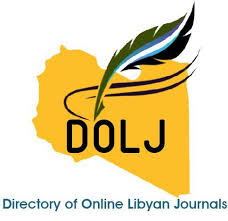Cytotoxic activity of Helianthemum Lippii
DOI:
https://doi.org/10.54361/ljmr.v8i2-01Keywords:
Medicinal plants, Cytotoxicity, Cancer, Helianthemum lippiiAbstract
Cancer is one of the most prominent human diseases which have stimulated scientific and commercial interest in the discovery of new anticancer agents from natural sources. The current study investigates the cytotoxic activity ofethanolic extracts of Helianthemum lippii used locally for the treatment of cancer using the MTT assay on the HeLa cell line. Helianthemum lippii showed activity comparable to the reference compound Cisplatin. The results justify the use of Helianthemum lippii in traditional treatment of cancer.
Downloads
References
Pandya, Gupta, Pandav, Barthwal, Jayaram and Kumar (2012) DNA binding studies of Vinca alkaloids: experimental and computational evidence. Nat Prod Commun, 7, 3: 305-309.
Sears and Boger (2015) Total synthesis of vinblastine, related natural products, and key analogues and development of inspired methodology suitable for the systematic study of their structure-function properties. Acc Chem Res, 48, 3: 653-662.
Nwodo, Ibezim, Simoben and Ntie-Kang (2015) Exploring cancer therapeutics with natural products from African medicinal plants, part II: alkaloids, terpenoids and flavonoids. Anticancer Agents Med Chem,
Singh, Shedbalkar, Wadhwani and Chopade (2015) Bacteriagenic silver nanoparticles: synthesis, mechanism, and applications. Appl Microbiol Biotechnol 99. 11: 4579-4593.
Hosseini and Ghorbani (2015) Cancer therapy with phytochemicals: evidence from clinical studies. Avicenna J Phytomed, 5 (2): 84-97.
Bennur, Kumar, Zinjarde and Javdekar (2015) Nocardiopsis species: Incidence, ecological roles and adaptations. Microbiol Res, 174: 33-47.
Khan, Saif, Quradha, Ali, Rauf and Khan (2015) Antioxidant, antimicrobial and urease inhibiting activities of methanolic extracts from Cyphostemma digitatum stem and roots. Nat Prod Res, 1-3.
Shah, Sadiq, Shah and Ullah. Antioxidant, total phenolic contents and antinociceptive potential of Teucrium stocksianum methanolic extract in different animal models. BMC Complement Altern Med, 14: 181.
Nguyen, Pham, Pham, Quach, Pudhom, Hansen and Nguyen (2015) Chemical constituents from Sonneratia ovata Backer and their in vitro cytotoxicity and acetylcholinesterase inhibitory activities. Bioorg Med Chem Lett, 25, 11: 2366-2371.
Oka, Maeda, Koga, Kato and Saito (1992) A modified colorimetric MTT assay adapted for primary cultured hepatocytes: application to proliferation and cytotoxicity assays. Biosci Biotechnol Biochem, 56, 9: 1472-1473
Downloads
Published
Issue
Section
License
Copyright (c) 2014 Libyan Journal of Medical Research

This work is licensed under a Creative Commons Attribution-NonCommercial-NoDerivatives 4.0 International License.
Open Access Policy
Libyan journal of medical Research (LJMR).is an open journal, therefore there are no fees required for downloading any publication from the journal website by authors, readers, and institution.
The journal applies the license of CC BY (a Creative Commons Attribution 4.0 International license). This license allows authors to keep ownership f the copyright of their papers. But this license permits any user to download , print out, extract, reuse, archive, and distribute the article, so long as appropriate credit is given to the authors and the source of the work.
The license ensures that the article will be available as widely as possible and that the article can be included in any scientific archive.
Editorial Policy
The publication of an article in a peer reviewed journal is an essential model for Libyan journal of medical Research (LJMR). It is necessary to agree upon standards of expected ethical behavior for all parties involved in the act of publishing: the author, the journal editorial, the peer reviewer and the publisher.
Any manuscript or substantial parts of it, submitted to the journal must not be under consideration by any other journal. In general, the manuscript should not have already been published in any journal or other citable form, although it may have been deposited on a preprint server. Authors are required to ensure that no material submitted as part of a manuscript infringes existing copyrights, or the rights of a third party.
Authorship Policy
The manuscript authorship should be limited to those who have made a significant contribution and intellectual input to the research submitted to the journal, including design, performance, interpretation of the reported study, and writing the manuscript. All those who have made significant contributions should be listed as co-authors.
Others who have participated in certain substantive aspects of the manuscript but without intellectual input should only be recognized in the acknowledgements section of the manuscript. Also, one of the authors should be selected as the corresponding author to communicate with the journal and approve the final version of the manuscript for publication in the LJMR.
Peer-review Policy
- All the manuscripts submitted to LJMR will be subjected to the double-blinded peer-review process;
- The manuscript will be reviewed by two suitable experts in the respective subject area.
- Reports of all the reviewers will be considered while deciding on acceptance/revision or rejection of a manuscript.
- Editor-In-Chief will make the final decision, based on the reviewer’s comments.
- Editor-In-Chief can ask one or more advisory board members for their suggestions upon a manuscript, before making the final decision.
- Associate editor and review editors provide administrative support to maintain the integrity of the peer-review process.
- In case, authors challenge the editor’s negative decision with suitable arguments, the manuscript can be sent to one more reviewer and the final decision will be made based upon his recommendations.














